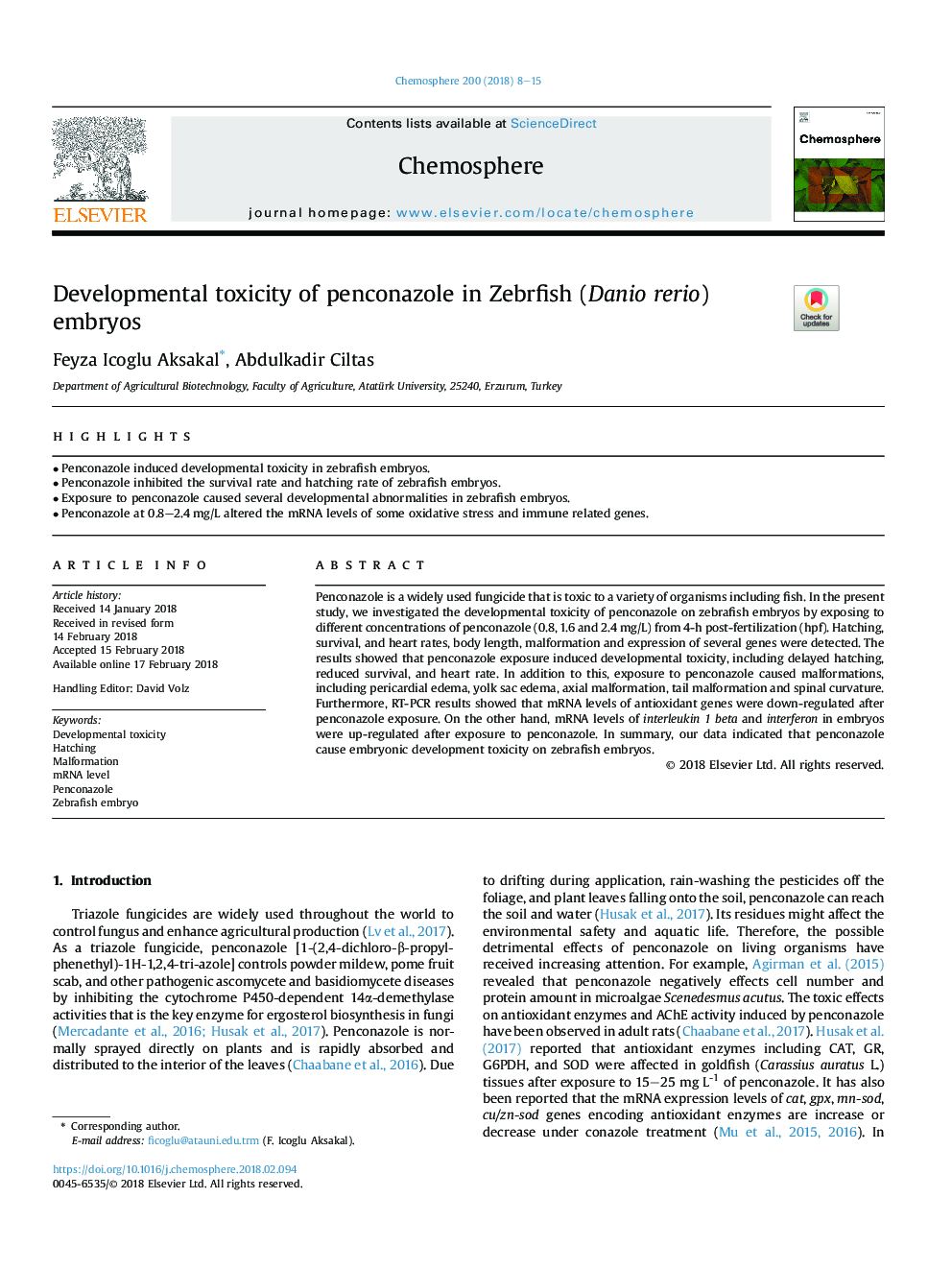| Article ID | Journal | Published Year | Pages | File Type |
|---|---|---|---|---|
| 8851723 | Chemosphere | 2018 | 8 Pages |
Abstract
Penconazole is a widely used fungicide that is toxic to a variety of organisms including fish. In the present study, we investigated the developmental toxicity of penconazole on zebrafish embryos by exposing to different concentrations of penconazole (0.8, 1.6 and 2.4â¯mg/L) from 4-h post-fertilization (hpf). Hatching, survival, and heart rates, body length, malformation and expression of several genes were detected. The results showed that penconazole exposure induced developmental toxicity, including delayed hatching, reduced survival, and heart rate. In addition to this, exposure to penconazole caused malformations, including pericardial edema, yolk sac edema, axial malformation, tail malformation and spinal curvature. Furthermore, RT-PCR results showed that mRNA levels of antioxidant genes were down-regulated after penconazole exposure. On the other hand, mRNA levels of interleukin 1 beta and interferon in embryos were up-regulated after exposure to penconazole. In summary, our data indicated that penconazole cause embryonic development toxicity on zebrafish embryos.
Related Topics
Life Sciences
Environmental Science
Environmental Chemistry
Authors
Feyza Icoglu Aksakal, Abdulkadir Ciltas,
